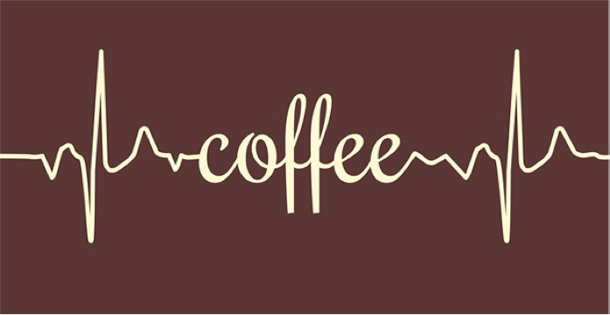“Your Weekly Checkup” is our online column by Dr. Douglas Zipes, an internationally acclaimed cardiologist, professor, author, inventor, and authority on pacing and electrophysiology. Dr. Zipes is also a contributor to The Saturday Evening Post print magazine. Subscribe to receive thoughtful articles, new fiction, health and wellness advice, and gems from our archive.
Order Dr. Zipes’ new book, Damn the Naysayers: A Doctor’s Memoir.
During more than 50 years of practicing cardiology, I have counseled hundreds, if not thousands, of patients complaining of palpitations and heart rhythm problems to reduce or eliminate intake of caffeinated beverages, particularly coffee. Caffeine, the major ingredient in coffee, is a known stimulant that triggers the body’s fight or flight response, with an outpouring of adrenaline and other substances. Three fourths of my physician colleagues proffer the same recommendation. Despite caffeine’s stimulating action, recent evidence suggests we may have been wrong.
An extensive review of multiple studies concluded that, barring about 25% of individual cases that exhibit a clear temporal association between heart rhythm episodes and caffeine intake, coffee and tea appear to be safe. A regular intake of up to three cups of coffee a day may even protect against heart rhythm disorders [PDF]. One large study of 228,465 participants showed that the incidence of atrial fibrillation decreased by 6 percent for every three cups of coffee a day. Another study of 115,993 patients showed a 13 percent reduction in the risk of atrial fibrillation.
One report concluded that drinking three to four cups of coffee daily compared with no coffee intake reduced death and cardiovascular disease by almost 20 percent. Coffee was also associated with a reduced risk of some cancers and neurological and liver disorders. Interestingly, patients with Parkinson’s disease had significantly lower serum concentrations of caffeine and its metabolites than subjects without the disease, despite consuming the same amount of caffeine. It’s not known whether this response might be due to the drugs they were taking or a specific effect of early Parkinson’s disease on caffeine metabolism.
Energy drinks are in a different class. They often contain caffeine at significantly higher concentrations than coffee and tea, along with other energy-boosting substances, such as guarana, sugar, ginseng, yohimbine, and ephedra. Guarana, particularly, has a higher caffeine concentration than coffee and contains theophylline, which also has stimulant properties. Multiple reports relating the temporal association between ingesting energy drinks and heart rhythm problems, including sudden death, are of major concern. Energy drinks may also increase the risk of blood clots. My recommendation is to avoid all energy drinks.
Some caution about accepting these positive results is advised since extrapolating data from healthy volunteers in the studies to individual patients can be risky. Differences in individual susceptibility to the effects of caffeine, various health conditions, and drugs could trigger caffeine-induced heart rhythm problems, so those with a clear temporal association between coffee intake and heart rhythm episodes should abstain. A transient blood pressure rise can occur in susceptible individuals. Also, caffeine tolerance developed by regular long-term coffee drinkers may explain some of the lack of association with heart rhythm problems. For example, I enjoy a double espresso after dinner each night and still fall quickly asleep (the wine helps!), but I have been drinking coffee regularly for many years and would not recommend this for new coffee drinkers.
In conclusion, those of you who are coffee and tea lovers can rest assured that, along with dark chocolate and red wine, caffeine intake is likely to be safe, and maybe even beneficial.
But wait! This column is mostly about caffeine and the heart. What about caffeine and cancer? See next week’s column.
Become a Saturday Evening Post member and enjoy unlimited access. Subscribe now




Comments
What about caffeine and high blood pressure? I’ve been advised to avoid caffeine.